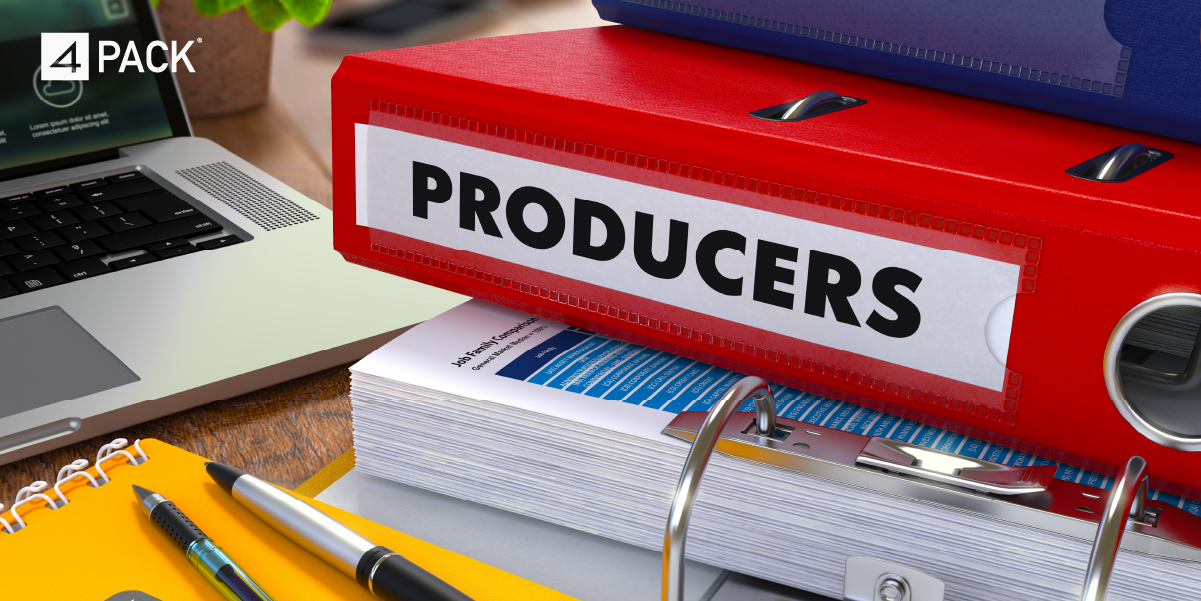Introduction to Extended Producer Responsibility
Definition and Overview
Extended Producer Responsibility (EPR) is a policy approach under which producers are given a significant responsibility – both financially and physically – for the treatment or disposal of post-consumer products. Assigning such responsibility could in principle provide incentives to prevent waste at the source, promote product design for the environment and support the achievement of public recycling and materials management goals.
The concept of EPR was formally introduced in Sweden in the early 1990s and has since gained traction across the globe. It challenges the traditional waste management practices by shifting the responsibility from consumers and local governments to the very creators of the products.
History and Evolution of Extended Producer Responsibility
The roots of EPR can be traced back to the 1970s when the idea of polluter pays principle started to take shape. However, it was not until the 1990s that EPR began to be implemented as a regulatory strategy, first in Europe and then spreading to other parts of the world. The approach has evolved to adapt to different industrial products and waste streams, from packaging and batteries to electronics and automobiles.
The Importance of Extended Producer Responsibility in Today’s World
In today’s increasingly eco-conscious world, EPR is more relevant than ever. With rising concerns about environmental pollution and resource depletion, EPR offers a pathway to more sustainable production and consumption patterns. It encourages producers to design products with their entire lifecycle in mind, thus reducing environmental impact and fostering innovation in sustainable product design.
Understanding the Principles of Extended Producer Responsibility
Core Principles and Objectives
At its core, Extended Producer Responsibility aims to extend the responsibility of producers beyond the factory gate. The objectives are multifaceted: reducing environmental impact, minimising waste and resource consumption, and shifting the economic burden of recycling from the public sector to the private sector. It’s about encouraging producers to take environmental considerations into account right from the design stage of a product.
How It Differs from Traditional Waste Management
Traditional waste management often places the burden of disposal and recycling on local authorities and, ultimately, on taxpayers. In contrast, EPR shifts this responsibility to producers, making them accountable for the entire lifecycle of their products. This shift not only alleviates financial pressure on public waste management systems but also incentivises producers to innovate in eco-friendly design and packaging.
The Global Perspective on Extended Producer Responsibility
Extended Producer Responsibility in Europe
Europe has been a frontrunner in implementing EPR policies. Countries like Germany, Sweden, and France have established robust systems for various product categories. For example, Germany’s Green Dot system revolutionised packaging waste management, while France has taken significant strides in electronic waste recycling.
Implementation in North America
North America has seen a gradual adoption of EPR, with Canada leading the way. In the United States, the approach varies by state, focusing mainly on specific waste streams like electronic waste and batteries. California, for example, has been proactive in implementing EPR for electronic waste.
Asia’s Approach to Extended Producer Responsibility
In Asia, countries like Japan and South Korea have integrated EPR into their national waste management strategies. South Korea’s EPR system covers a broad range of products and is considered one of the most comprehensive in the region. Japan focuses on consumer electronics and packaging, promoting recycling and reducing landfill waste.
Comparing Different Models Worldwide
While the basic premise of EPR remains consistent, its implementation varies widely across the globe. European models tend to be more regulatory and comprehensive, while North American models are more fragmented and voluntary. Asian models blend regulatory frameworks with cultural approaches to waste management.
Extended Producer Responsibility and Environmental Impact
Reducing Waste and Pollution
One of the primary environmental benefits of Extended Producer Responsibility is the significant reduction in waste and pollution. By making producers responsible for the end-of-life management of their products, there is a greater incentive to design products that are easier to recycle, reuse, or dispose of in an environmentally friendly manner. This shift not only reduces the volume of waste but also lessens the pollution associated with waste disposal and treatment.
Encouraging Sustainable Product Design
EPR encourages companies to innovate in the realm of sustainable product design. This includes using more recyclable materials, reducing the use of hazardous substances, and designing for longer product lifespans. Such innovation not only benefits the environment but can also lead to new market opportunities and cost savings for the producers in the long run.
Impact on Recycling and Resource Management
EPR schemes have a significant positive impact on recycling rates and resource management. By integrating the cost of waste management into the product price, these schemes provide the necessary funding to improve recycling infrastructure and technologies. This leads to more efficient resource use and helps in the transition to a circular economy, through minimisation of waste, and products and materials are reused and recycled to the greatest extent possible.
Legal and Regulatory Framework
Key Legislation and Policies
EPR is underpinned by various laws and regulations, which can differ significantly from country to country. In the European Union, directives such as the Waste Electrical and Electronic Equipment (WEEE) Directive and the Packaging and Packaging Waste Directive provide a legal framework for EPR. These regulations set targets for recycling and recovery and outline the responsibilities of producers.
Compliance and Enforcement
Ensuring compliance with EPR regulations is crucial for their success. This involves monitoring and enforcement mechanisms, often overseen by governmental bodies or independent organisations. Producers may need to report on the amount and type of packaging they produce and demonstrate how they are meeting recycling and recovery targets.
The Role of Government and Regulatory Bodies
Government and regulatory bodies play a pivotal role in implementing EPR policies. They are responsible for setting targets, defining producer responsibilities, and ensuring that the systems put in place are effective and fair. Governments also have the task of balancing the objectives of environmental protection with the economic impacts on businesses and consumers.
Extended Producer Responsibility in the UK: Focus on Manufacturers
Understanding EPR in the UK
In the UK, Extended Producer Responsibility (EPR) is gaining importance. It’s a policy where producers are responsible for their products’ impact on the environment, especially when it comes to disposal. The UK’s approach aims to make manufacturers more accountable, particularly at the end of a product’s life.
Key Laws Affecting Manufacturers
Several UK laws introduce EPR. The Packaging Waste Regulations are one example. They require producers of packaging to ensure some of it gets recycled. The Waste Electrical and Electronic Equipment (WEEE) Directive and the Batteries Directive also have similar recycling demands.
Duties and Adherence for Producers
Under EPR, UK manufacturers must manage their products’ waste stage. They contribute to recycling and disposal costs, design products for better recyclability, and sometimes run schemes to take back products when they’re no longer useful. They must also report how much and what kind of products or packaging they introduce into the market and meet recycling goals.
Influences on Product Design
EPR encourages manufacturers to think about the environment when designing products. This includes using sustainable materials, making products easier to recycle at the end of their lives, or reducing their environmental impact overall. This not only helps in meeting EPR rules but can also make products more attractive to environmentally conscious consumers.
Working Together
Implementing EPR often means different groups working together. Manufacturers, shops, waste handlers, and government bodies collaborate to create efficient recycling and waste management systems. This teamwork can lead to innovative, beneficial solutions for everyone.
Challenges and Looking Ahead
Adopting EPR in the UK can be challenging for manufacturers, like the cost of redesigning products or supporting recycling efforts. However, these challenges also bring opportunities for innovation and can lead to long-term benefits. As the UK continues to develop its EPR strategies, manufacturers will likely play a big role in moving the country towards a sustainable future.
How 4Pack Can Assist in Navigating Extended Producer Responsibilities
Streamlining EPR Management with Digital Solutions
Navigating the complexities of Extended Producer Responsibility (EPR) can be challenging for manufacturers, especially when it comes to compliance and sustainable product design. This is where 4Pack steps in. We offer a cloud-based digital solution tailored to assist businesses in managing product packaging and specifications effectively and efficiently.
4Pack’s Cloud-Based Solution: A Game-Changer for Manufacturers
4Pack’s innovative platform simplifies the process of packaging management and product specification. By using our digital solution, manufacturers can easily track and manage the materials used in their packaging, ensuring they comply with EPR regulations. This tool is particularly useful for adhering to recycling requirements and reducing environmental impact.
Enhancing Sustainable Product Design
Our service goes beyond compliance. 4Pack aids manufacturers in the pursuit of sustainable product design. By providing detailed insights into the materials and resources used, our platform enables companies to make informed decisions that align with eco-friendly practices. This approach not only supports EPR compliance but also fosters innovation in sustainable design.
Efficient Collaboration and Reporting
One of the key benefits of 4Pack is the ease of collaboration and reporting it offers. Our cloud-based solution facilitates seamless communication between different departments and stakeholders. This feature is essential for maintaining transparency and ensuring that all aspects of a product’s lifecycle are managed in line with EPR guidelines.
Future-Proofing Your Business
With 4Pack, manufacturers can future-proof their business against evolving EPR legislation and consumer demands for sustainability. Our platform is designed to adapt to changing regulations, providing businesses with a tool that evolves as their EPR responsibilities do. This adaptability makes 4Pack an invaluable asset for any manufacturer navigating the complexities of EPR.
Speak to our team today to learn how our solutions can benefit you.




